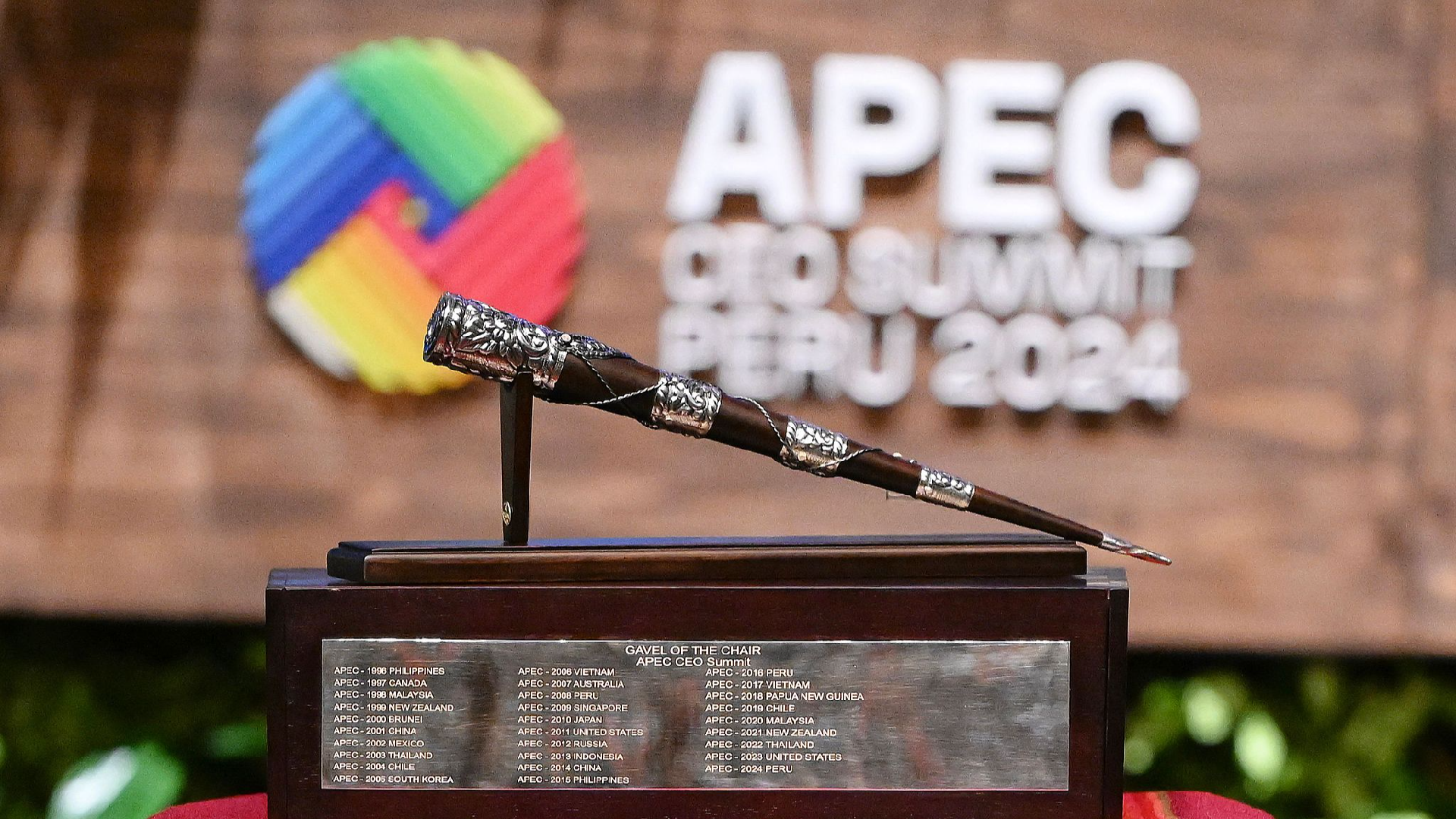"Globalization Absent America?"
The 31st APEC Economic Leaders' Meeting could face challenges due to the United States' significant disengagement; however, it will still convene leaders from more than 30 countries.

In June 2024, Chile submitted an application to join the Regional Comprehensive Economic Partnership (RCEP), alongside Sri Lanka and the Hong Kong Special Administrative Region. India is also reconsidering its membership options. The RCEP stands as the largest free trade agreement globally, resulting from eight years of meticulous negotiations led by the Association of Southeast Asian Nations.
Should Chile's application be approved, it would mark the first entry from the eastern Pacific into the RCEP, which has primarily concentrated on trade relations within North and Southeast Asia. Chile’s potential involvement would certainly reshape the trade landscape. Moreover, if India and Sri Lanka also join, the agreement would span both the Pacific and Indian oceans.
The connectivity between Asia and the East Pacific is expected to receive a significant boost with the inauguration of the Chancay mega port in Peru. Owned 60 percent by China's COSCO Shipping, this landmark facility will be the first major trade port on South America's west coast. This development will facilitate direct trade between South America and Asia, eliminating the need for transshipment through Mexico or the United States, and is projected to cut shipment times between Brazil and China by 15 days.
These developments signify a new chapter in global interconnectivity when the U.S., the principal architect of the current global multilateral trade framework embodied by the World Trade Organization (WTO), appears to be retreating from global trade engagement. During the first Donald Trump administration, the U.S. declined to ratify new judges for the WTO appellate body, thus making formal dispute resolution impossible. In response, nations have devised informal or ad hoc solutions, although the backlog of disputes at the WTO continues to swell. Under both Trump and his successor Joe Biden, increasingly protectionist policies have been pursued, with sanctions, export restrictions, and tariffs being used as elements of a national security strategy.
The Biden administration aimed to revitalize U.S. status and influence in Southeast Asia but has faced criticism for its perceived lack of commitment and effectiveness. A key part of this strategy was supposed to be trade enhancement, but without offering better access to North American markets, the trade proposal fell flat. The U.S. Congress showed little inclination to grant low-cost access to Southeast Asian producers, and Biden lacked the political desire to tackle this topic. Trump had previously withdrawn the U.S. from the Trans-Pacific Partnership, while Biden has opted not to join its successor, the Comprehensive and Progressive Agreement for Trans-Pacific Partnership. Meanwhile, China has submitted its application to join the CPTPP, which is still pending.
The backdrop of the Asia-Pacific Economic Cooperation (APEC) Leaders' Meeting highlights these issues. As Global South countries seek expanded trade and connectivity opportunities, the U.S. has become more of a laggard than a leader. Its policies have, at times, undermined the effectiveness of the existing global multilateral trading system. Actions such as weaponizing the U.S. dollar payment system, freezing U.S. dollar-denominated assets, and imposing sanctions have diminished confidence in key post-World War II economic multilateral institutions.
It appears unlikely that APEC will directly remedy these challenges. The U.S. has, in many respects, operated independently concerning the global multilateral system. Its inclination to “go it alone” by erecting barriers or withdrawing from participation has necessitated new approaches from other nations.
Transpacific collaboration on issues like climate change will likely face similar obstacles, particularly with the incoming Trump administration's antagonistic view towards climate change, which he has referred to as a "hoax." Efforts to coordinate policy for a transition to clean energy may struggle as the U.S. intensifies its focus on shale oil production.
As the U.S. disengages from contributing to the coordination needed for enhanced global trade openness and a transition to sustainable energy, the nature of globalization itself is expected to evolve. The current phase of globalization, characterized by U.S. sidelining, is ambitious and requires nations to expand their multilateral dialogues rather than diminish them. Achieving consensus will be vital to the diplomatic ethos that will shape the next stage of multilateral institution building.
The 31st APEC Economic Leaders' Meeting may be affected by the U.S.'s disengagement, yet it will still serve as a platform for leaders from over 30 countries to convene—a noteworthy achievement amid the prevailing geopolitical tensions.
Anna Muller for TROIB News
Find more stories on Business, Economy and Finance in TROIB business












